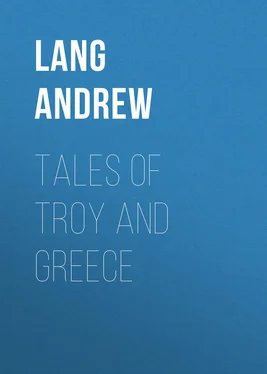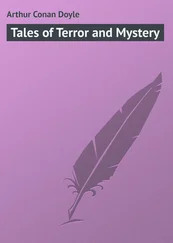Andrew Lang - Tales of Troy and Greece
Здесь есть возможность читать онлайн «Andrew Lang - Tales of Troy and Greece» — ознакомительный отрывок электронной книги совершенно бесплатно, а после прочтения отрывка купить полную версию. В некоторых случаях можно слушать аудио, скачать через торрент в формате fb2 и присутствует краткое содержание. Жанр: foreign_antique, foreign_prose, на английском языке. Описание произведения, (предисловие) а так же отзывы посетителей доступны на портале библиотеки ЛибКат.
- Название:Tales of Troy and Greece
- Автор:
- Жанр:
- Год:неизвестен
- ISBN:нет данных
- Рейтинг книги:5 / 5. Голосов: 1
-
Избранное:Добавить в избранное
- Отзывы:
-
Ваша оценка:
- 100
- 1
- 2
- 3
- 4
- 5
Tales of Troy and Greece: краткое содержание, описание и аннотация
Предлагаем к чтению аннотацию, описание, краткое содержание или предисловие (зависит от того, что написал сам автор книги «Tales of Troy and Greece»). Если вы не нашли необходимую информацию о книге — напишите в комментариях, мы постараемся отыскать её.
Tales of Troy and Greece — читать онлайн ознакомительный отрывок
Ниже представлен текст книги, разбитый по страницам. Система сохранения места последней прочитанной страницы, позволяет с удобством читать онлайн бесплатно книгу «Tales of Troy and Greece», без необходимости каждый раз заново искать на чём Вы остановились. Поставьте закладку, и сможете в любой момент перейти на страницу, на которой закончили чтение.
Интервал:
Закладка:
The news of the dishonour done to Menelaus and to all the princes of Greece ran through the country like fire through a forest. East and west and south and north went the news: to kings in their castles on the hills, and beside the rivers and on cliffs above the sea. The cry came to ancient Nestor of the white beard at Pylos, Nestor who had reigned over two generations of men, who had fought against the wild folk of the hills, and remembered the strong Heracles, and Eurytus of the black bow that sang before the day of battle.
The cry came to black-bearded Agamemnon, in his strong town called 'golden Mycenae,' because it was so rich; it came to the people in Thisbe, where the wild doves haunt; and it came to rocky Pytho, where is the sacred temple of Apollo and the maid who prophesies. It came to Aias, the tallest and strongest of men, in his little isle of Salamis; and to Diomede of the loud war-cry, the bravest of warriors, who held Argos and Tiryns of the black walls of huge stones, that are still standing. The summons came to the western islands and to Ulysses in Ithaca, and even far south to the great island of Crete of the hundred cities, where Idomeneus ruled in Cnossos; Idomeneus, whose ruined palace may still be seen with the throne of the king, and pictures painted on the walls, and the King's own draught-board of gold and silver, and hundreds of tablets of clay, on which are written the lists of royal treasures. Far north went the news to Pelasgian Argos, and Hellas, where the people of Peleus dwelt, the Myrmidons; but Peleus was too old to fight, and his boy, Achilles, dwelt far away, in the island of Scyros, dressed as a girl, among the daughters of King Lycomedes. To many another town and to a hundred islands went the bitter news of approaching war, for all princes knew that their honour and their oaths compelled them to gather their spearmen, and bowmen, and slingers from the fields and the fishing, and to make ready their ships, and meet King Agamemnon in the harbour of Aulis, and cross the wide sea to besiege Troy town.
Now the story is told that Ulysses was very unwilling to leave his island and his wife Penelope, and little Telemachus; while Penelope had no wish that he should pass into danger, and into the sight of Helen of the fair hands. So it is said that when two of the princes came to summon Ulysses, he pretended to be mad, and went ploughing the sea sand with oxen, and sowing the sand with salt. Then the prince Palamedes took the baby Telemachus from the arms of his nurse, Eurycleia, and laid him in the line of the furrow, where the ploughshare would strike him and kill him. But Ulysses turned the plough aside, and they cried that he was not mad, but sane, and he must keep his oath, and join the fleet at Aulis, a long voyage for him to sail, round the stormy southern Cape of Maleia.
Whether this tale be true or not, Ulysses did go, leading twelve black ships, with high beaks painted red at prow and stern. The ships had oars, and the warriors manned the oars, to row when there was no wind. There was a small raised deck at each end of the ships; on these decks men stood to fight with sword and spear when there was a battle at sea. Each ship had but one mast, with a broad lugger sail, and for anchors they had only heavy stones attached to cables. They generally landed at night, and slept on the shore of one of the many islands, when they could, for they greatly feared to sail out of sight of land.
The fleet consisted of more than a thousand ships, each with fifty warriors, so the army was of more than fifty thousand men. Agamemnon had a hundred ships, Diomede had eighty, Nestor had ninety, the Cretans with Idomeneus, had eighty, Menelaus had sixty; but Aias and Ulysses, who lived in small islands, had only twelve ships apiece. Yet Aias was so brave and strong, and Ulysses so brave and wise, that they were ranked among the greatest chiefs and advisers of Agamemnon, with Menelaus, Diomede, Idomeneus, Nestor, Menestheus of Athens, and two or three others. These chiefs were called the Council, and gave advice to Agamemnon, who was commander-in-chief. He was a brave fighter, but so anxious and fearful of losing the lives of his soldiers that Ulysses and Diomede were often obliged to speak to him very severely. Agamemnon was also very insolent and greedy, though, when anybody stood up to him, he was ready to apologise, for fear the injured chief should renounce his service and take away his soldiers.
Nestor was much respected because he remained brave, though he was too old to be very useful in battle. He generally tried to make peace when the princes quarrelled with Agamemnon. He loved to tell long stories about his great deeds when he was young, and he wished the chiefs to fight in old-fashioned ways.
For instance, in his time the Greeks had fought in clan regiments, and the princely men had never dismounted in battle, but had fought in squadrons of chariots, but now the owners of chariots fought on foot, each man for himself, while his squire kept the chariot near him to escape on if he had to retreat. Nestor wished to go back to the good old way of chariot charges against the crowds of foot soldiers of the enemy. In short, he was a fine example of the old-fashioned soldier.
Aias, though so very tall, strong, and brave, was rather stupid. He seldom spoke, but he was always ready to fight, and the last to retreat. Menelaus was weak of body, but as brave as the best, or more brave, for he had a keen sense of honour, and would attempt what he had not the strength to do. Diomede and Ulysses were great friends, and always fought side by side, when they could, and helped each other in the most dangerous adventures.
These were the chiefs who led the great Greek armada from the harbour of Aulis. A long time had passed, after the flight of Helen, before the large fleet could be collected, and more time went by in the attempt to cross the sea to Troy. There were tempests that scattered the ships, so they were driven back to Aulis to refit; and they fought, as they went out again, with the peoples of unfriendly islands, and besieged their towns. What they wanted most of all was to have Achilles with them, for he was the leader of fifty ships and 2,500 men, and he had magical armour made, men said, for his father, by Hephaestus, the God of armour-making and smithy work.
At last the fleet came to the Isle of Scyros, where they suspected that Achilles was concealed. King Lycomedes received the chiefs kindly, and they saw all his beautiful daughters dancing and playing at ball, but Achilles was still so young and slim and so beautiful that they did not know him among the others. There was a prophecy that they could not take Troy without him, and yet they could not find him out. Then Ulysses had a plan. He blackened his eyebrows and beard and put on the dress of a Phoenician merchant. The Phoenicians were a people who lived near the Jews, and were of the same race, and spoke much the same language, but, unlike the Jews, who, at that time were farmers in Palestine, tilling the ground, and keeping flocks and herds, the Phoenicians were the greatest of traders and sailors, and stealers of slaves. They carried cargoes of beautiful cloths, and embroideries, and jewels of gold, and necklaces of amber, and sold these everywhere about the shores of Greece and the islands.
Ulysses then dressed himself like a Phoenician pedlar, with his pack on his back: he only took a stick in his hand, his long hair was turned up, and hidden under a red sailor's cap, and in this figure he came, stooping beneath his pack, into the courtyard of King Lycomedes. The girls heard that a pedlar had come, and out they all ran, Achilles with the rest, to watch the pedlar undo his pack. Each chose what she liked best: one took a wreath of gold; another a necklace of gold and amber; another earrings; a fourth a set of brooches, another a dress of embroidered scarlet cloth; another a veil; another a pair of bracelets; but at the bottom of the pack lay a great sword of bronze, the hilt studded with golden nails. Achilles seized the sword. 'This is for me!' he said, and drew the sword from the gilded sheath, and made it whistle round his head.
Читать дальшеИнтервал:
Закладка:
Похожие книги на «Tales of Troy and Greece»
Представляем Вашему вниманию похожие книги на «Tales of Troy and Greece» списком для выбора. Мы отобрали схожую по названию и смыслу литературу в надежде предоставить читателям больше вариантов отыскать новые, интересные, ещё непрочитанные произведения.
Обсуждение, отзывы о книге «Tales of Troy and Greece» и просто собственные мнения читателей. Оставьте ваши комментарии, напишите, что Вы думаете о произведении, его смысле или главных героях. Укажите что конкретно понравилось, а что нет, и почему Вы так считаете.












